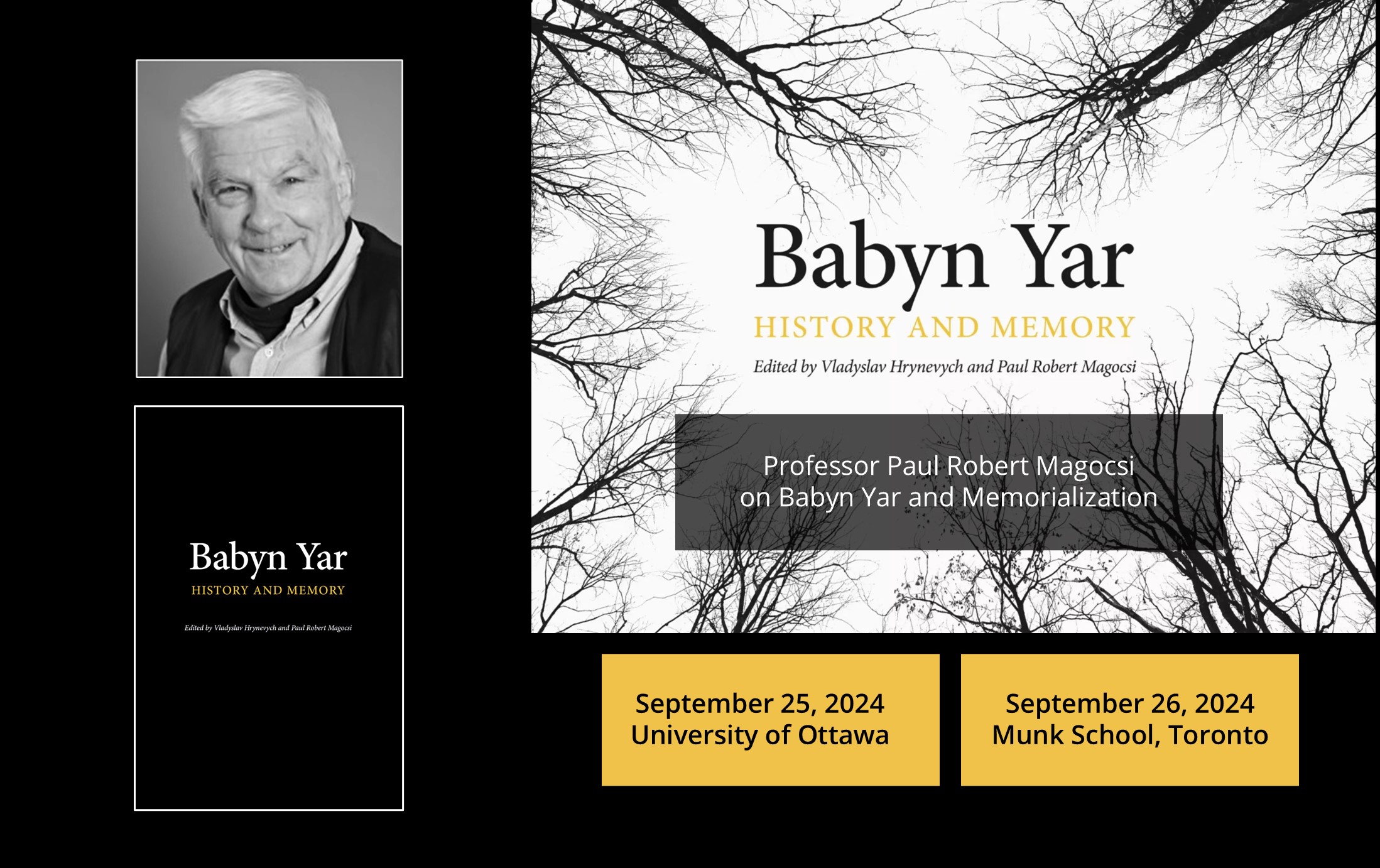Videos: Professor Paul Robert Magocsi on Babyn Yar and memorialization
Ottawa — September 25, 2024
University of Ottawa
On September 25th, 2024, the University of Ottawa, in conjunction with the Ukrainian-Canadian Congress and UJE, brought together politicians, community leaders, and students to a presentation by UJE Board Member Professor Paul Robert Magocsi, Chair of Ukrainian Studies, University of Toronto, and co-editor of Babyn Yar: History and Memory. Moderators Professor Dominique Arel, Chair of Ukrainian Studies, University of Ottawa, and Yulia Yurchuk, Lenior Lecturer, Department of History of Ideas, Soderton University, Sweden, asked several in-depth and complex questions.
In his opening remarks, Professor Magocsi stressed that Babyn Yar is more than a symbol of the atrocities committed in September 1941; it has become a site of contention where the efforts at memorialization are themselves complex and politically charged. Babyn Yar: History and Memory offers a comprehensive overview of the ravine’s legacy as the location of multiple tragedies. The book, which interweaves history, art, and culture, highlights how competing memories of Babyn Yar have prevented it from being fully integrated into Ukraine’s national historical narrative.
After the discussion, most attendees stayed to continue the discussion at a reception and received a signed copy of the book.
Toronto — September 26, 2024
Munk School of Global Affairs and Public Policy and Global Affairs
Several complexities were the focus of a recent discussion hosted by the Centre for European and Eurasian Studies (CEES) at the Munk School of Global Affairs and Public Policy and UJE on September 26th, 2024. The event brought together UJE Board Member Professor Paul Robert Magocsi, Chair of Ukrainian Studies at the University of Toronto and co-editor of Babyn Yar: History and Memory, and Professor Robert Austin, Associate Director of CEES, who moderated the conversation. Opening remarks were provided by Edward Schatz, Director of CEES.
Professor Magocsi, in his opening remarks, emphasized that Babyn Yar is more than a symbol of the atrocities committed in September 1941; it has become a site of contention where the efforts at memorialization are themselves complex and politically charged. Babyn Yar: History and Memory offers a comprehensive overview of the ravine’s legacy as the location of multiple tragedies. The book, which interweaves history, art, and culture, highlights how competing memories of Babyn Yar have prevented it from being fully integrated into Ukraine’s national historical narrative.
Read More @the Munk School of Global Affairs & Public Policy website.




















